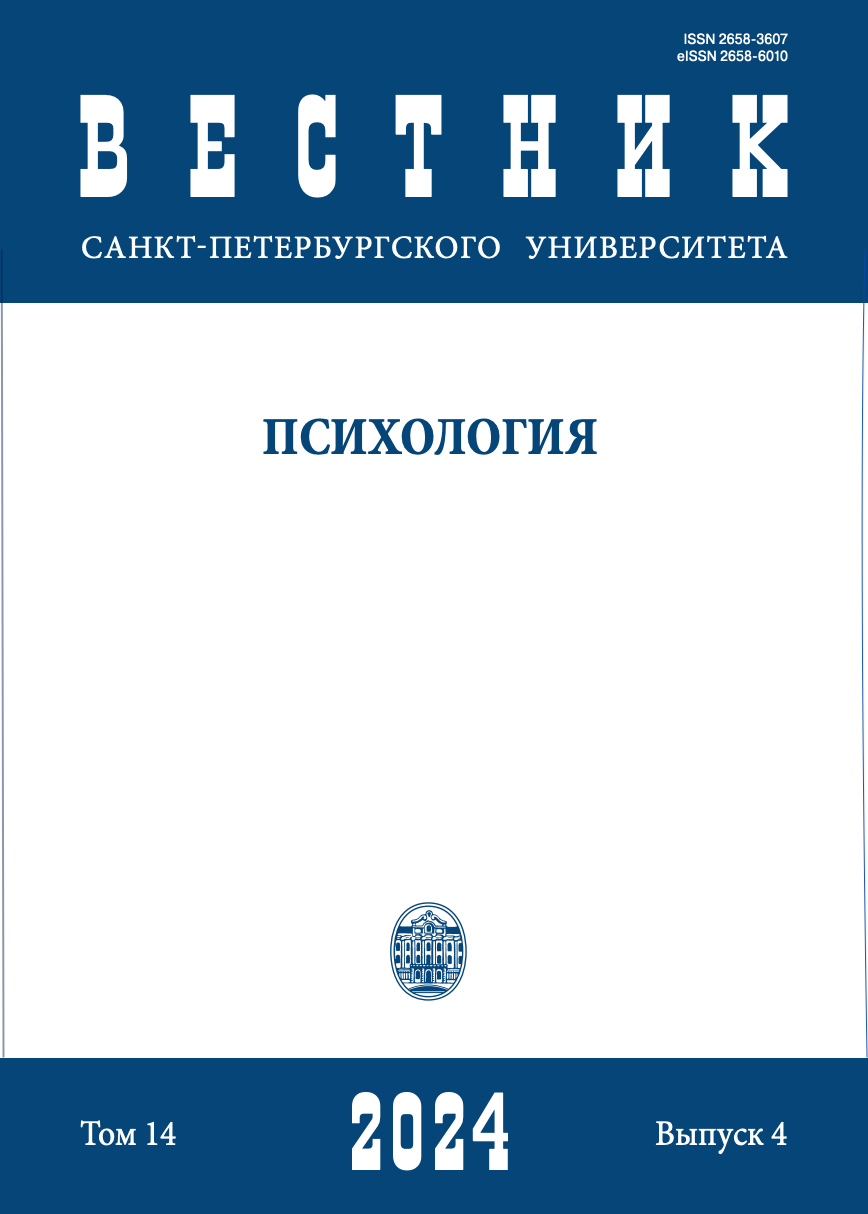Этническая идентичность и карьерные установки молодежи
DOI:
https://doi.org/10.21638/spbu16.2024.406Аннотация
В статье представлены результаты эмпирического исследования связи этнической идентичности и карьерных установок молодежи. Выборка составила 323 респондента в возрасте от 18 до 35 лет (М ≈ 25 лет), среди которых 99 женщин и 55 мужчин, проживающих в Санкт-Петербурге; 111 женщин, 58 мужчин, проживающих в Казани. Используемые методы: опросник «Типы этнической идентичности» Г. У. Солдатовой, С. В. Рыжовой; шкалы экспресс-оценки выраженности этнической идентичности и чувств, связанных с этнической принадлежностью Н. М. Лебедевой, опросник оценки проактивного конструирования (крафтинга) карьеры Дж. И. Ли с соавторами в переводе и адаптации С. Д. Гуриевой и др., «Якоря карьеры» Э. Шейна, социально-демографическая анкета. В ходе анализа данных нами использовались: факторный анализ как гипотезопорождающий этап изучения данных с дальнейшей детализацией с помощью методов описательной статистики, распределение частот, критериев U Манна — Уитни и H Краскала — Уоллиса, коэффициента ранговой корреляции r-Спирмена для выявления межгрупповых различий. Обработка данных проводилась с помощью программы IBM SPSS Statistics 26.0. Полученные по факторному анализу результаты дают возможность внести важное уточнение, которое позволяет выстроить и показать существующую связь между этнической идентичностью и карьерными установками. Также было выявлено наличие положительной корреляционной связи между уровнем позитивной этнической идентичности и показателями карьерных установок молодежи, отрицательной связи между уровнями гипо- и гиперидентичности и проактивным карьерным поведением, карьерными установками, за исключением ориентации на стабильность. Получены статистически значимые различия по полу, по показателям этнической идентичности и карьерных установок. Полученные результаты исследования позволяют сделать важные выводы, которые могут быть использованы в практике управления человеческими ресурсами в полиэтнической среде.
Ключевые слова:
этническая идентичность, идентичность, карьерные установки, карьерные предпочтения, карьера, молодежь
Скачивания
Библиографические ссылки
References
Загрузки
Опубликован
Как цитировать
Выпуск
Раздел
Лицензия
Статьи журнала «Вестник Санкт-Петербургского университета. Психология» находятся в открытом доступе и распространяются в соответствии с условиями Лицензионного Договора с Санкт-Петербургским государственным университетом, который бесплатно предоставляет авторам неограниченное распространение и самостоятельное архивирование.




